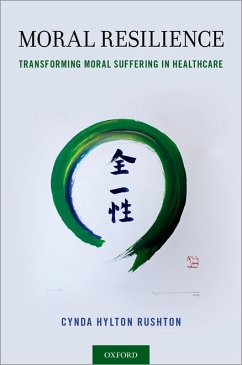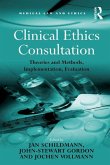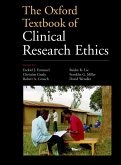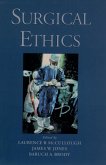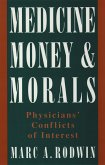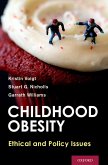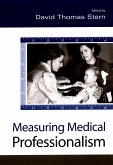Suffering is an unavoidable reality in health care. Not only are patients and families suffering but also the clinicians who care for them. Commonly the suffering experienced by clinicians is moral in nature, in part a reflection of the increasing complexity of health care, their roles within it, and the expanding range of available interventions. Moral suffering is the anguish that occurs when the burdens of treatment appear to outweigh the benefits; scarce human and material resources must be allocated; informed consent is incomplete or inadequate; or there are disagreements about goals of treatment among patients, families or clinicians. Each is a source of moral adversity that challenges clinicians' integrity: the inner harmony that arises when their essential values and commitments are aligned with their choices and actions. If moral suffering is unrelieved it can lead to disengagement, burnout, and undermine the quality of clinical care. The most studied response to moral adversity is moral distress. The sources and sequelae of moral distress, one type of moral suffering, have been documented among clinicians across specialties. It is vital to shift the focus to solutions and to expanded individual and system strategies that mitigate the detrimental effects of moral suffering. Moral resilience, the capacity of an individual to restore or sustain integrity in response to moral adversity, offers a path forward. It encompasses capacities aimed at developing self-regulation and self-awareness, buoyancy, moral efficacy, self-stewardship and ultimately personal and relational integrity. Clinicians and healthcare organizations must work together to transform moral suffering by cultivating the individual capacities for moral resilience and designing a new architecture to support ethical practice. Used worldwide for scalable and sustainable change, the Conscious Full Spectrum approach, offers a method to solve problems to support integrity, shift patterns that undermine moral resilience and ethical practice, and source the inner potential of clinicians and leaders to produce meaningful and sustainable results that benefit all.
Dieser Download kann aus rechtlichen Gründen nur mit Rechnungsadresse in A, B, BG, CY, CZ, D, DK, EW, E, FIN, F, GR, HR, H, IRL, I, LT, L, LR, M, NL, PL, P, R, S, SLO, SK ausgeliefert werden.

